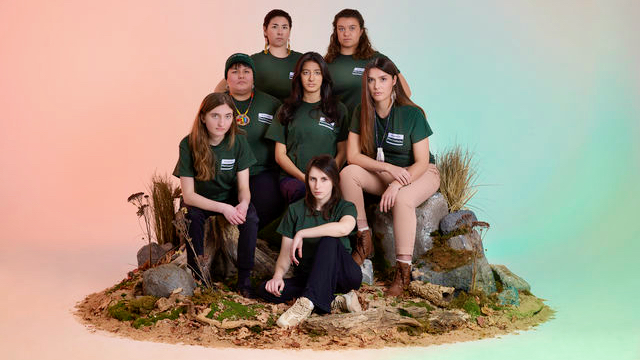For 17-year-old Zoe Keary-Matzner, the threat of climate change has been a constant thought for as long as she can remember.
“I think I’ve always been concerned about it. One thing I remember from when I was very young is that when I would blow out the candles on my birthday cake, I used to wish that climate change would stop,” she said.
She was just 12 years old when she took part in Mathur et al., the lawsuit set by a group of seven young activists from across Ontario to bring the provincial government to court over its climate policy in November 2019.
The suit argued the Ontario government’s decision to reduce greenhouse gas emissions by 30 per cent below 2005 levels by 2030 is unconstitutional as it violates the Canadian Charter rights that protect youth and those of future generations.
The previous government’s goal was 37 per cent below 1990 levels by the end of 2030, court files show.
The motion was allowed to proceed in September 2022, but the court dismissed the case in April 2023, ruling Ontario’s target is not arbitrary.
However, the judge recognized the province’s target increases the risk of harming and death to the population, especially for marginalized communities.
The group, backed by lawyers from Ecojustice and Stockwoods LLP, was before the Court of Appeal on Jan. 15 and 16. It’s expected the court will take between six months to one year to rule, lawyers say.
Keary-Matzner said she felt disappointed when the case was initially dismissed, but she is more optimistic after the appeal.
“I’m feeling really hopeful after our hearing,” she said. “The general feeling among the applicants is one of confidence, we know our case is strong and justice is on our side.”
Ecojustice’s lawyer Danielle Gallant said the government tactics to deal with climate lawsuits in Canada have always been to shut them down before they’re even heard.
But this time was different.
“The Mathur case won at the first level, meaning it is the first Canadian case to have made it to a full hearing,” she said. “By a full hearing means the judge was making a decision on the merits of the case rather than should it even proceed in the first place.”
She said the two main arguments brought to the Appeal Court regarded the Ontario emissions target’s role in worsening the climate crisis and the merit of the initial dismissal.
“We are arguing that Ontario is not merely sitting back and doing nothing, but it’s actively causing the increased risk of harm and death to Ontarians setting a target with dangerous levels of GHG emissions,” she said.
“The other main argument is that the judge below made an error when she found that Ontario’s target is not arbitrary or grossly disproportionate, while at the same time determining that it falls severely short of the scientific consensus on the necessary climate action and that the gap between the two is large, unexplained, and without scientific basis,” she said.

Friday For Future Toronto activist Zoe Keary-Matzner posing in Toronto, January 2024. Mathur et al. is the first climate lawsuit based on Charter-protected rights to receive a full hearing in a Canadian court in September 2022. Photo credit: EcoJustice/Tilly Nelson
The report “Hot Hot Air” by the environmental organization Environmental Defence found Ontario will miss its emissions reduction target. Based on current policies, emissions in 2030 will be 160 megatonnes, 16 megatonnes higher than the province’s stated target and not in line with the objectives set by the federal government and the Paris Agreement.
Further, last year’s Auditor General’s report found the Ontario Minister of the Environment, Conservation and Parks did not report data relative to the province’s target emissions between 2019 and 2021, including status, each sector’s contribution and forecasts based on the plan.
York University Environmental and Urban Change professor Mark Winfield said Ontario’s emissions targets haven’t changed that much recently, but the significant issue is the lack of any climate strategies as well as no commitment to net zero by 2050.
“What’s missing is the complete absence of any plan in terms of how we would reduce emissions. Indeed, the pathway the province is on is one towards increasing emissions quite substantially,” he said.
“If you want a case study in public policy failure, this would be a good one,” Winfield said.
Galland said cases like Mathur et al. are important because they send a clear message to governments and society at large.
“Legal challenges like this really have the potential to set important legal precedents,” she said. “They’re set on Charter rights, and governments can’t backtrack from them.”
For Keary-Matzner, collective action is the key to fighting climate change and alleged government negligence.
“We’re young people and we do actually have a lot of power when we get together and organize,” she said.
“We can have a say in what the future looks like by making it clear to those who actually do have power that we’re not going to forget what they do in this critical time and this critical window we have for taking climate action,” Keary-Matzner said.

